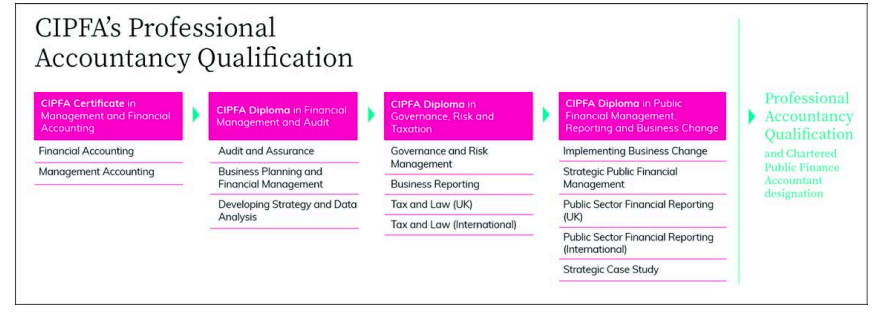January 2022
The world has changed so much recently. Politically, economically and environmentally – there is a great deal of uncertainty surrounding global events, which will inevitably impact everyone in some way, if it hasn’t already.
The pandemic has undoubtedly altered how we live day-to-day, with the full ramifications of those changes still to be felt. The climate crisis also has the terrifying potential to take a terrible toll on the human population unless we make drastic changes sooner rather than later.
Politics also seems to have changed fundamentally, while the rapid rise of ever new and emerging technologies promise radical changes to how the world operates.
It’s time for an update
Just as the world is evolving and changing, so must we. Standing still will leave us behind as the world races ahead. This is exactly why we have taken the opportunity to reform and rebuild our Professional Qualification, which has always offered students the best foundation for a role in public sector finance.
After a long period of extensive consultation, discussion and collaboration, we are pleased to present the new CIPFA Professional Accountancy Qualification, or CIPFA PAQ for short.
The new qualification includes some significant changes, while still remaining focused on giving our students the best possible preparation for the unique demands of the modern and diverse public sector.
We have changed the name
Most obviously the name has changed. This is to better reflect the international nature of the PAQ. The qualification will now be consistent wherever a student is located. CIPFA is an international organisation with a presence in the UK, so we felt it was important that our flagship qualification acknowledge this fact.
Another important change is the structure of the course. The new syllabus will contain four modules that, when all passed, will result in both the PAQ and designation of a Chartered Public Finance Accountant being awarded.
The four modules are one certificate and three diplomas.
They are:
• Certificate in Management and Financial Accounting.
• Diploma in Financial Management and Financial Audit.
• Diploma in Governance, Risk and Taxation.
• Diploma in Public Financial Management, Reporting and Business Change.
Awards are given for each stage successfully completed to aid and encourage progression.
The modules have been designed so that they map the educational journey beginning at an undergraduate level. As students progress throughout the course, the modules become more similar to a postgraduate level of study.
There’s new content, too
But the course structure isn’t where the changes end. The actual content of the course has been substantially refreshed and updated to better reflect the demands of working in the modern public sector.
Sustainability is now at the top of government agendas and priorities around the world, and quite rightly too. In order to successfully deliver the government’s ambitious net zero strategy, public sector finance professionals will be central in protecting our places and planet, and need to be involved in the decision-making process. They will need to ensure scarce funds are best delivered to have the biggest positive impact not only on the environment but also on communities across the country. Ensuring value for money will, as always, be crucial.
The PAQ will acknowledge this urgent need, and contain more focus on sustainability, green finance, environmental reporting and performance measures. There is also an emphasis on strategic delivery in a changing environment, as well as the importance of procuring sustainably. These skills will become vital as the public sector adapts and changes to tackle climate change, so it is imperative that we introduce these to our students early on in their accountancy journey to best prepare them for the future.
The race to fight climate change is not the only race being run, however. The relentless pace of technological development will have an increasing impact on how our public sector professionals do their jobs, and those in finance departments are no exception. Technology is changing how we manage public finances, and across a number of modules in the updated syllabus the characteristics and benefits of big data and data analytics are considered.
Emerging technologies such as cloud computing, artificial intelligence, cyber risk, cryptocurrencies, automation and blockchain will also be explored.
Ethics comes to the fore
Along with the importance of sustainability and technology, we must also be mindful of the guiding principles of working in the public sector – transparency, honesty and openness, along with a drive to improve the lives of individuals and communities. As the first professional accountancy body to adopt the International Ethical Standards Board of Accountants Code as our own standard of professional practice, there is now a renewed focus on this area across the new syllabus.
We have created a new ethics e-learning module which is to be taken before students begin their studies. This then forms a central resource bank for students that is referenced as they progress throughout the programme.
It was really important to us that students who are currently studying the existing Professional Qualification (PQ) face minimal disruption to their studies while we introduce the PAQ.

This is why we have comprehensive transition arrangements in place to support current PQ students while they complete their course.
The new PAQ will run alongside the PQ and its international equivalent, the International Public Financial Management (IPFM) qualification while the existing students finish their courses.
These students are not required to complete any additional units and their progress will not be interrupted in any way.
Current PQ students will not lose out, however, as they shall have access to all the new features of the PAQ, including a new online learning environment and mental health and wellbeing support. Current students will also be able to access the content taught on the new syllabus in the form of Continuing Professional Development (CPD) training courses.
How we actually learn is changing constantly, and as a forward-looking organisation we have a responsibility to keep up with this pace of change so we can offer our students the maximum amount of flexibility over how and when they learn.
Improving delivery
We have taken this opportunity to review and improve the way we deliver our flagship qualification. A new learner management system and e-assessment platform will now be available to all our students, regardless of which course they are on. As a result, the remote and digital learning experience should be improved.
With this enhanced platform, we are also exploring hybrid learning that combines the benefits of both remote and face-to-face experiences. We want to cater for a wide variety of learning preferences and requirements.
As we hurtle full speed into 2022, everyone needs to be ready for the challenges that lie ahead – and this goes for those in the public sector as well. We must embrace change and adapt to thrive, and it is through this dynamism that we stand the best chance of success.
Working in the public sector is incredibly rewarding and fulfilling, and we want CIPFA accountants to be as best prepared for it as possible. The PAQ continues our strong tradition of equipping students for a successful career in our modern, diverse and exciting public sector.
• Anna Howard is Head of Qualifications and Membership at CIPFA




